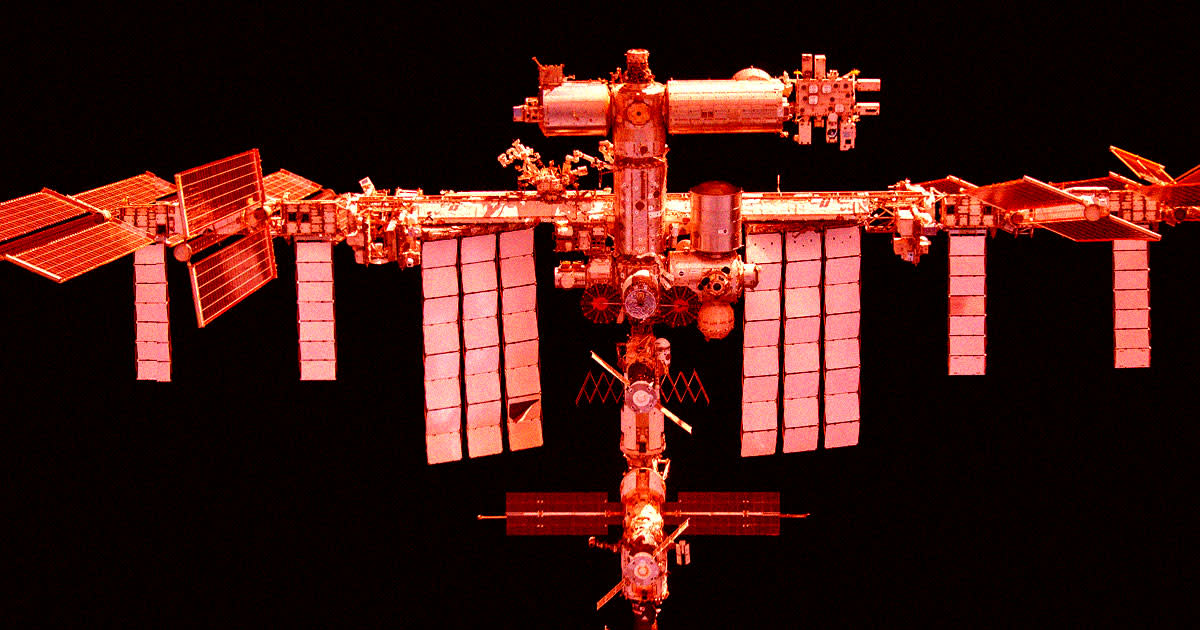Former Space Agency Leaders Horrified by Plan to Destroy Space Station, Say It Would Be Easier to Save It

- Oops!Something went wrong.Please try again later.
- Oops!Something went wrong.Please try again later.
Save the ISS
Last month, NASA awarded SpaceX an almost $1 billion contract to develop a "US Deorbit Vehicle" capable of pulling the International Space Station out of orbit and burning it up in the Earth's atmosphere.
The aging orbital outpost's demise has been in the works for years now, with NASA hoping to destroy it by 2030, marking the end of three decades of peaceful international cooperation in Earth's orbit.
And not everybody's happy with the plan. Jean-Jacques Dordain, who was the director general of the European Space Agency when the station was being built, and former NASA administrator Michael Griffin say its life should be extended instead, giving future scientists a chance to continue studying outer space.
"As two among many builders of ISS, we recommend to those in charge to consider other options than destroying" the station, Dordain told Forbes in an interview.
Instead, he argued, the ISS should be transferred "to future generations... leaving them to decide" its fate, he added.
Future Gift
To do it, Dordain and Griffin argue SpaceX's deorbit vehicle should be used to rescue the station, not destroy it. Such a rocket would increase the ISS's altitude, not lower it, allowing it to enter a stable orbit much farther from the Earth.
In an open letter published by SpaceNews earlier this month, the two space agency legends argued that boosting the ISS "from its present 400-kilometer altitude to an 800-kilometer altitude circular orbit requires a boost of about 220 meters per second, about the same as required for precise deorbit control."
"At the higher altitude, the orbital lifetime would be many decades, providing ample time for future generations to take their own decisions and actions," the letter reads. "For that, the ISS should be left in a condition such that no part of it can explode and create a long-lived debris hazard."
"Obviously, further studies must be conducted before those in charge today can make an informed decision," the pair wrote. "We are not in charge anymore, but our question to the current generation is: since the boost stage must be built anyway, would it not be better to use that stage to place the ISS in a higher orbit for the possible use of a future generation than to destroy it upon reentry?"
More on destroying the ISS: NASA Hires SpaceX to Destroy the International Space Station

